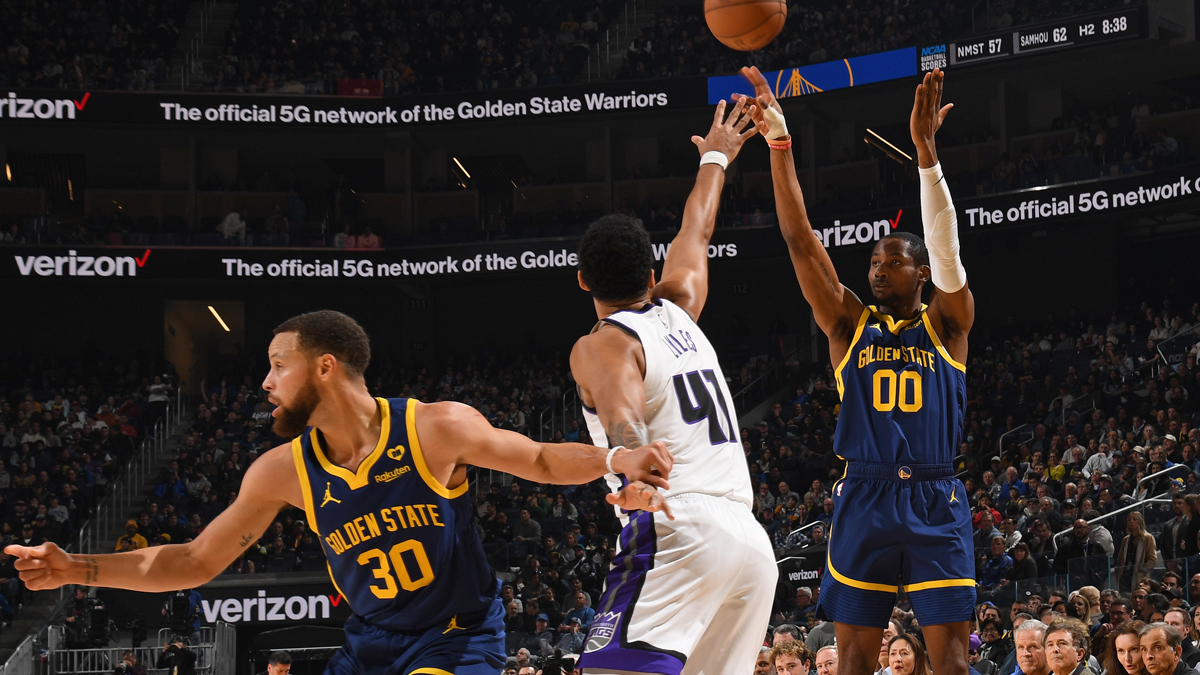Larry Sanders was the No. 15 overall pick in the 2010 NBA Draft and quickly became one of the most intimidating defensive forces in the league. He burst on the scene with the Milwaukee Bucks, appearing in 112 games over his first two seasons before starting 55 of 71 games in his third, over which he averaged 2.8 blocks per contest, second-most in the league.
On the surface, it appeared Sanders would have an impressive and lasting NBA career. But what was bubbling underneath it ruled that out, as he faced a much tougher battle off the court than on it.
"Learning about anxiety has been a journey, and I think at first it was kind of crippling," Sanders said in a segment during NBC Sports' documentary, "HEADSTRONG: Mental Health and Sports." "And it kind of transformed as I got older into, I guess, kind of a sense of awareness."
Sanders traces his anxiety back to his childhood.
"My mother used to drop me off at my grandmother's house on the weekends, me and my sister, and when she would leave, I would have these anxiety attacks and I would cry all night," Sanders said. "I would cry myself to sleep all night with separation anxiety, because she had a very rough dynamic with my father. So because I felt like her life was threatened so much, I felt like my life was threatened in return, so every time she left my sight, especially at night, I would have these outbreaks. And I didn't even really remember this until I was in my early 20s."
Despite achieving success so early in his NBA career, Sanders wasn't able to enjoy it.
Sports
"I think I was going through a state of depression," he said, "and I felt like I couldn't really bring myself to the table. I couldn't really be myself.
"You don't want to look like a damaged vehicle, man. You don't want to look like something is wrong with you. You want to play good, you want to make it seem like everything is okay. Going through something? Go through it in the dark. Because they're going to hold it against you. You'll hurt yourself, your family, everybody else ... such a crippling situation."
To help cope with his anxiety, Sanders often turned to marijuana. He was suspended multiple times for violating the league's anti-drug program, including a 10-game suspension in January of 2015. Still, the threat of a suspension didn't overpower his desire to smoke.
"I weighed it every time I picked up a joint," Sanders admitted, "and the way it made me feel mentally outweighed the consequences every time. Sorry to say, that's just what it was, because [marijuana] was providing more for me -- as far as sustaining and managing my life -- than money was."
When Sanders was given that 10-game suspension, the Bucks released a team statement expressing their disappointment in his actions. That proved to be the final straw in their relationship.
"I think the water kind of got mucky," Sanders recalled. "I didn't see a way that we could have resolved it, me and the Bucks. It kind of got dirty."
Sanders stepped away from the team, and when the Bucks pressured him to return, he put his mental health ahead of his salary.
"The last day of the All-Star break," Sanders recounted, "they called and they said, you know, 'You gotta come back to Milwaukee. You gotta come to practice. They're going to sue you, it's going to be bad. They're going to come for that contract'. And I told [my agent] ... call Milwaukee and make a press conference and tell them I'm going to retire for free. And I just want to tell everybody why.
"And they called me back 15 minutes later, they said we've got a deal on the table."
Sanders and Milwaukee agreed to a contract buyout that paid him $15.2 million of his remaining salary, spread over seven years per the stretch provision. He can understand if people think of him as ungrateful or unappreciative, even though that's not the case.
"You kind of sound like a jerk," Sanders said, "for not being as appreciative, right, because you say, 'Damn, you're a professional athlete, you're in the place, in the spotlight, and you're somewhere where people in my area want to be.' But I would say, who set that value system up? Did I set it up? Did you? It was set up for you before you even got here, who you should value in society and who should be important to you."
Ahead of the current 2019-20 season, the NBA adopted a rule change requiring all teams to add full-time mental health professionals to their staff. Sanders views that as a positive step forward with the increased awareness mental health issues are now receiving.
"When we look back on 2019, we'll say we were in the prehistoric ages when it came to mental health," Sanders said. "The professional sports will say that and the respect level of it will be much higher in the future than it was when I was going through my battles, and that's something to look forward to."
You can watch all of the "HEADSTRONG: Mental Health and Sports" vignettes right here. The full documentary will play all month on NBC Sports Bay Area and NBC Sports California.
Check our channel listings page for times and dates.



